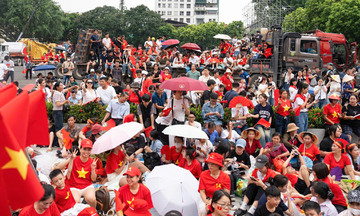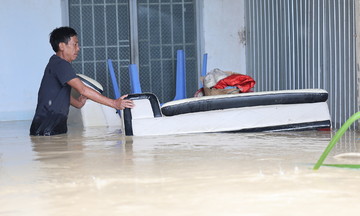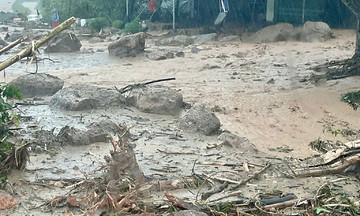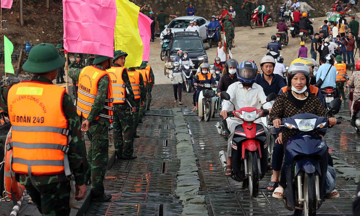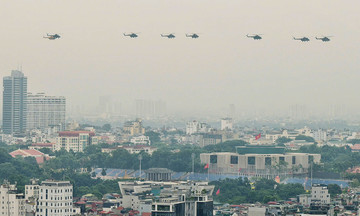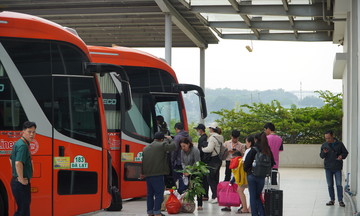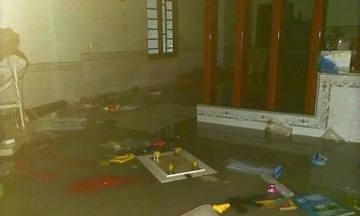Lump-sum social insurance withdrawals restricted.
The amended Social Insurance Law, effective from 1/7/2025, stipulates that lump-sum social insurance withdrawals will no longer be granted to individuals joining the system from this date onward, except in specific circumstances. These exceptions include individuals who have reached retirement age but haven't contributed to social insurance for 15 years; those emigrating; and those suffering from cancer, polio, decompensated cirrhosis, severe tuberculosis, AIDS, or those with a labor capacity reduction of 81% or more, or with severe disabilities.
Workers who joined the system before 1/7/2025, have contributed for less than 20 years, and have been unemployed for 12 months can still withdraw their social insurance if they request. The new law is expected to retain over 18 million workers within the social security system, ending the wave of lump-sum withdrawals. In recent years, an average of 800,000 workers have left the system annually.
In addition to the above policy, the new law also amends the regulation on retirement pensions. Workers who have contributed to social insurance for 15 years or more and have reached retirement age are eligible for a pension. At the time the law takes effect, the retirement age for men is 61 years and 3 months, and for women, 56 years and 8 months. The retirement age will gradually increase until it reaches 62 for men in 2028 and 60 for women in 2035.
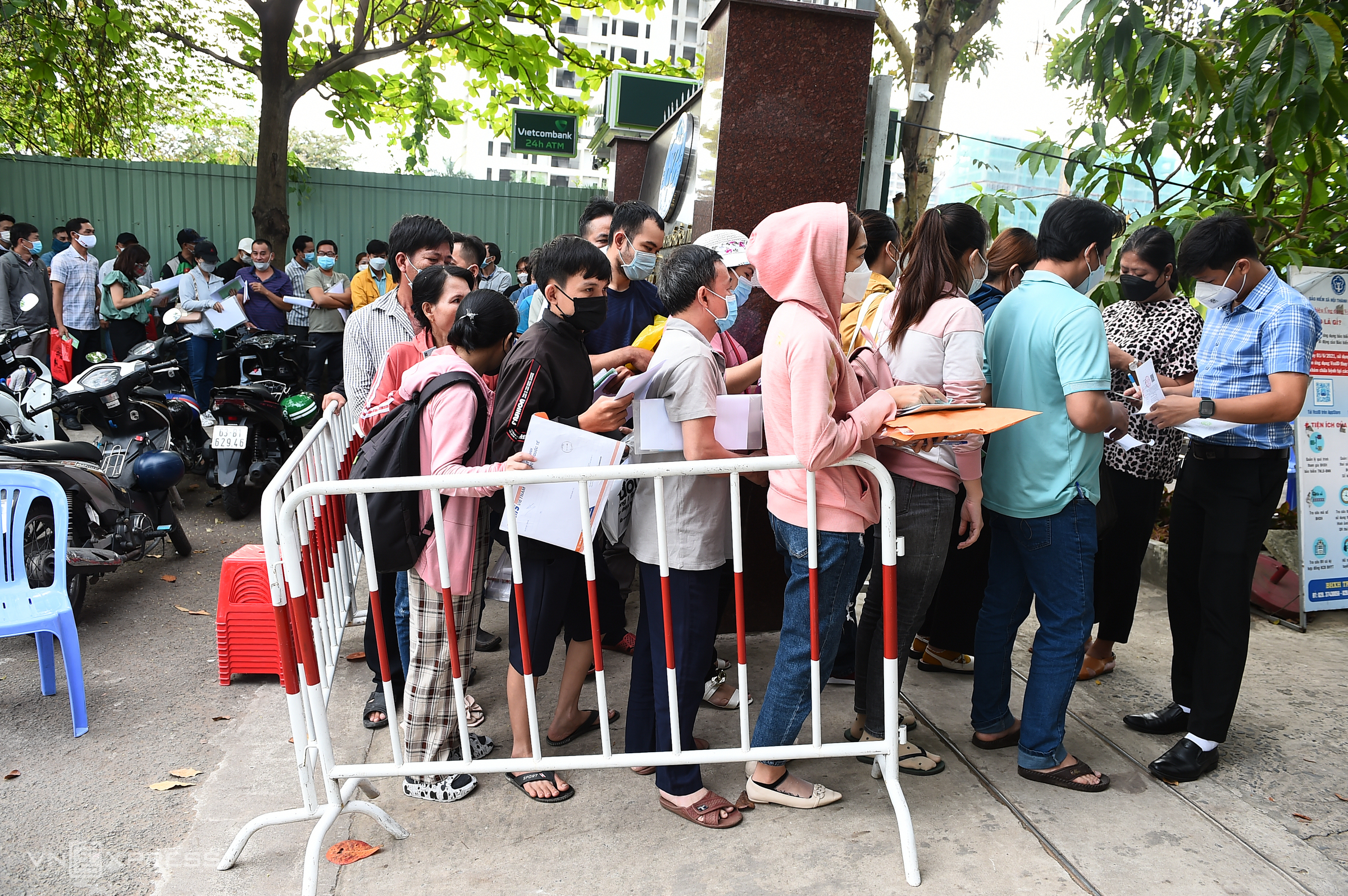 |
People withdrawing social insurance at the Social Insurance Office in Thu Duc City, 2022. Photo: Quynh Tran |
People withdrawing social insurance at the Social Insurance Office in Thu Duc City, 2022. Photo: Quynh Tran
The law introduces a new social security tier for people aged 75 and above who are not receiving pensions or social insurance benefits, and for those aged 70 to 74 from poor and near-poor households residing in extremely disadvantaged communes and villages. The benefits include a social pension, funeral expense support, and health insurance coverage from the state budget.
The social pension amount will be determined by the government based on socio-economic conditions and the state budget, and will be reviewed and adjusted every 3 years. An estimated 700,000 people are expected to benefit when this policy takes effect.
Four more groups to receive state support for health insurance.
The amended Law on Health Insurance, effective from 1/7, expands state-funded health insurance coverage to 4 additional groups.
The first group comprises recipients of monthly social pensions, including those aged 75 and above, as well as those aged 70 to 74 from poor and near-poor households. Statistics indicate that around 1.5 million people aged 75 to 80 will receive social pensions from 1/7.
The second group consists of individuals receiving monthly survivor benefits (due to the death of a family member, usually a spouse), including those aged 75 and above, and those aged 70 to 74 from near-poor households, while the current regulation sets the age limit at 80.
The third group includes those who have contributed to social insurance for less than 15 years, have reached retirement age but are not yet eligible for a pension, and are receiving monthly allowances from their contributions to the Fund. This group has no income and faces the highest health risks. Lastly, there are regular militia members, a force ready to participate in emergency tasks such as disaster and epidemic prevention.
The amended law stipulates that the maximum contribution for these groups is 6% of the reference level, subsidized by the state budget. The current reference level is 2.34 million VND, meaning the maximum contribution for supported groups is 1.404 million VND per person per year.
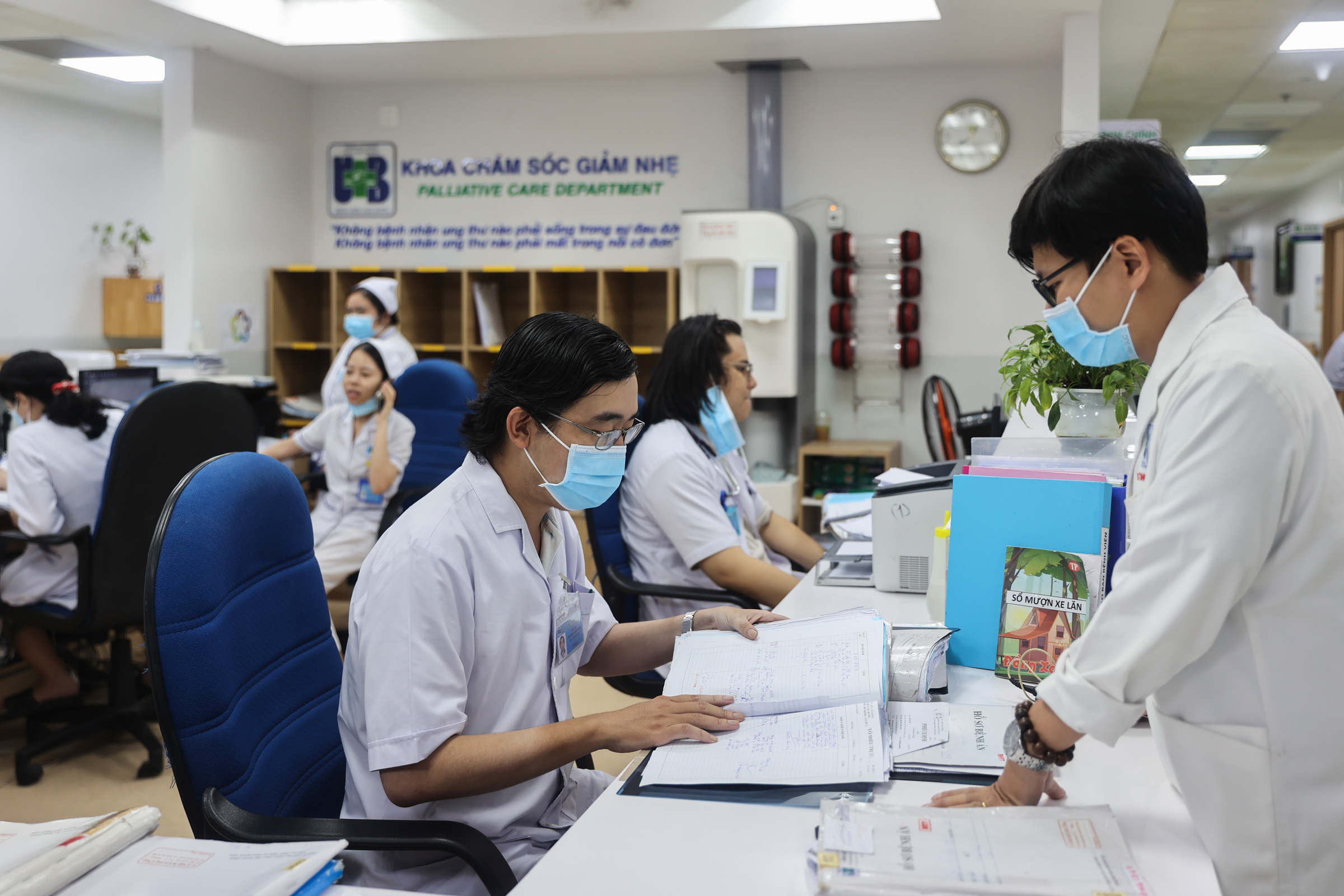 |
Doctors and medical staff working at Ho Chi Minh City Oncology Hospital Facility 2, Thu Duc City, 6/2024. Photo: Quynh Tran |
Doctors and medical staff working at Ho Chi Minh City Oncology Hospital Facility 2, Thu Duc City, 6/2024. Photo: Quynh Tran
Trade union funds can be used to build social housing.
The amended Trade Union Law, effective from 1/7, stipulates that trade union finances consist of union dues contributed by union members; state budget support; other income from cultural, sports, and economic activities of the trade union; from state-assigned projects; and legitimate aid and donations from domestic and international organizations and individuals.
Trade union finances will be used to support union members, such as protecting their rights, teaching them new skills, and organizing cultural and sports activities. In addition, the new law adds that trade union funds can also be used to build social housing for rent by union members and workers, and to construct cultural, sports, and technical infrastructure facilities for union members and workers.
The Vietnam General Confederation of Labor will issue standards, norms, and regulations for expenditure and management of trade union finances. The government will detail the management and use of trade union funds by worker organizations in enterprises.
Commune chairmen authorized to issue land titles.
According to Decree 151/2025 on decentralization and delegation of authority in the field of land, effective from 1/7, commune-level People's Committee chairmen will be authorized to issue land use right certificates and ownership certificates for assets attached to land (land titles) for the first time to citizens. Commune-level authorities are also authorized to issue land titles based on approved land contribution and adjustment plans. Previously, this task was handled by provincial and district levels.
Cases of land title issuance under the jurisdiction of provincial People's Committees will be delegated to communes, wards, and special zones, including: Issuing land titles to domestic organizations such as state agencies, Party agencies, armed forces, the Fatherland Front, socio-political organizations, public service units; religious organizations; foreign organizations with diplomatic functions; overseas Vietnamese; and foreign-invested economic organizations.
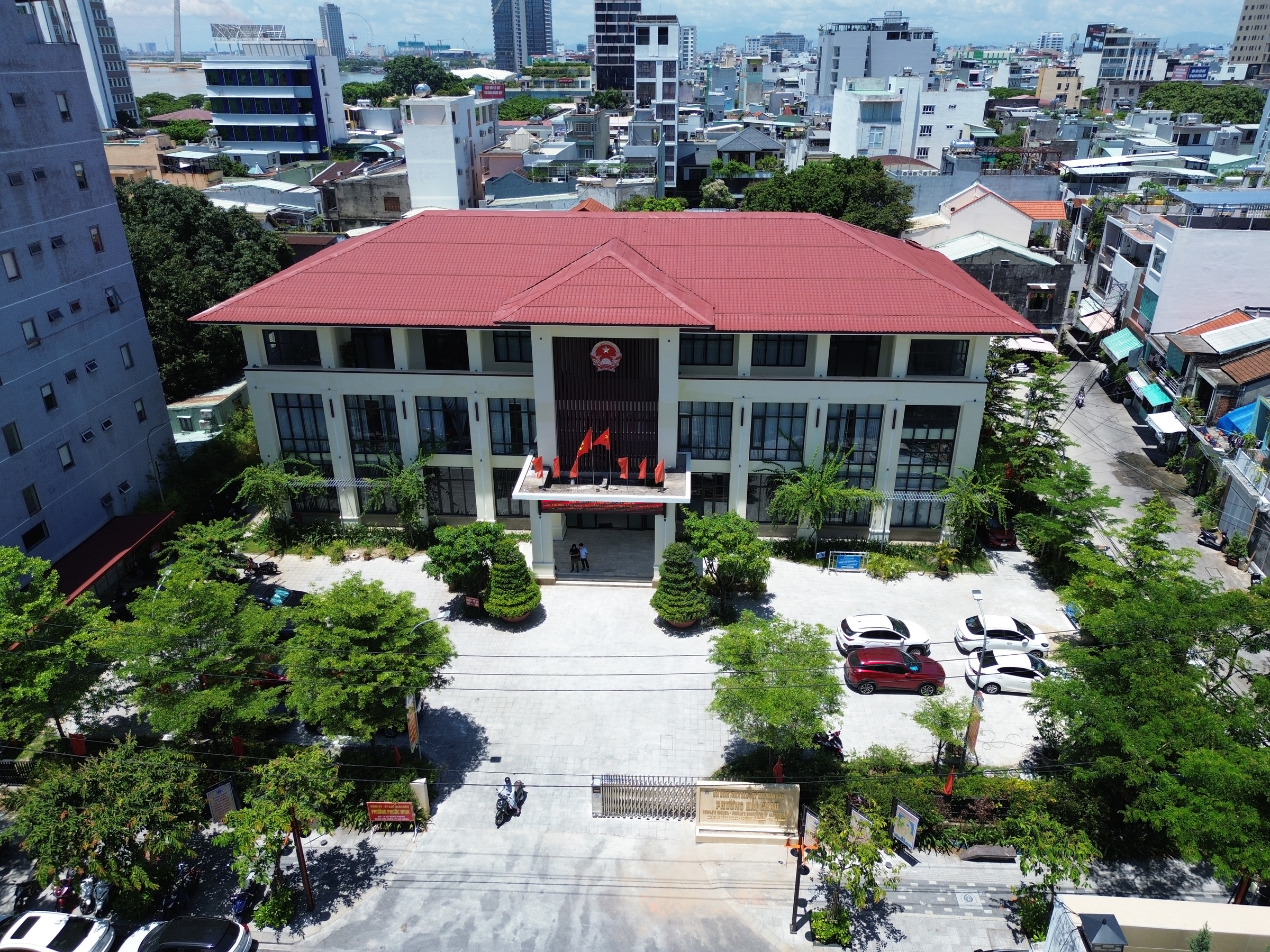 |
The newly located office of the Hai Chau Ward People's Committee at 15 Le Hong Phong Street, Da Nang City. Photo: Nguyen Dong |
The newly located office of the Hai Chau Ward People's Committee at 15 Le Hong Phong Street, Da Nang City. Photo: Nguyen Dong
The government has authorized commune-level People's Committees to redetermine residential land areas and issue land titles in cases where land plots with gardens, ponds, and residential land were granted land titles before 1/7/2004.
In addition, several other authorities have been transferred from the district level to commune-level People's Committee chairmen, such as: Approving agricultural land use plans of economic organizations; approving rice land use plans of individuals; land reclamation; approving compensation, support, and resettlement plans; approving coercion plans and budgets for coercion activities; deciding specific land prices; and deciding selling prices of resettlement houses within their jurisdiction.
Commune-level People's Committee chairmen are authorized to establish Land Valuation Councils and make decisions on land allocation, lease, and land use purpose conversion for individuals, previously under the authority of the provincial level.
New regulations on tax payment on e-commerce platforms.
According to Decree 117/2025, e-commerce platforms and digital platforms are required to withhold and remit value-added tax (VAT) and personal income tax on behalf of sellers (households and individual businesses) on their platforms from 1/7. Sellers include individuals residing both domestically and internationally.
The above taxes will be deducted upon successful order confirmation and payment acceptance by the buyer. The tax amount is determined as a percentage of the revenue from each completed transaction.
For example, the VAT rate is 1% for certain goods, 5% for services, and 3% for transportation and services associated with goods. The personal income tax rate for domestic residents is 0.5% for goods, 2% for services, and 1.5% for transportation and services associated with goods. Foreign individuals selling on online platforms are subject to personal income tax rates of 1% for goods, 5% for services, and 2% for transportation and services associated with goods.
Urban housing must have fire alarm communication devices.
According to the Law on Fire Prevention, Fighting, and Rescue, effective from 1/7, housing in centrally-governed cities located in areas with inadequate transportation infrastructure and water sources for firefighting must meet certain fire safety standards.
Specifically, houses must be equipped with fire extinguishers and fire alarm communication devices connected to the Rescue, Relief, and Fire Alarm Communication Database System. Centrally-governed city People's Committees will identify the areas subject to these regulations and implement them according to the government's roadmap. Currently, there are 6 centrally-governed cities: Hanoi, Ho Chi Minh City, Hai Phong, Hue, Da Nang, and Can Tho.
For housing in other areas, the installation of fire alarm communication devices is not mandatory but encouraged. In addition, houses must have safe cooking areas and places of worship, and must not store flammable or explosive materials near fire or heat sources. They should also have appropriate fire prevention and firefighting equipment and designated escape routes and emergency exits.
Son Ha





